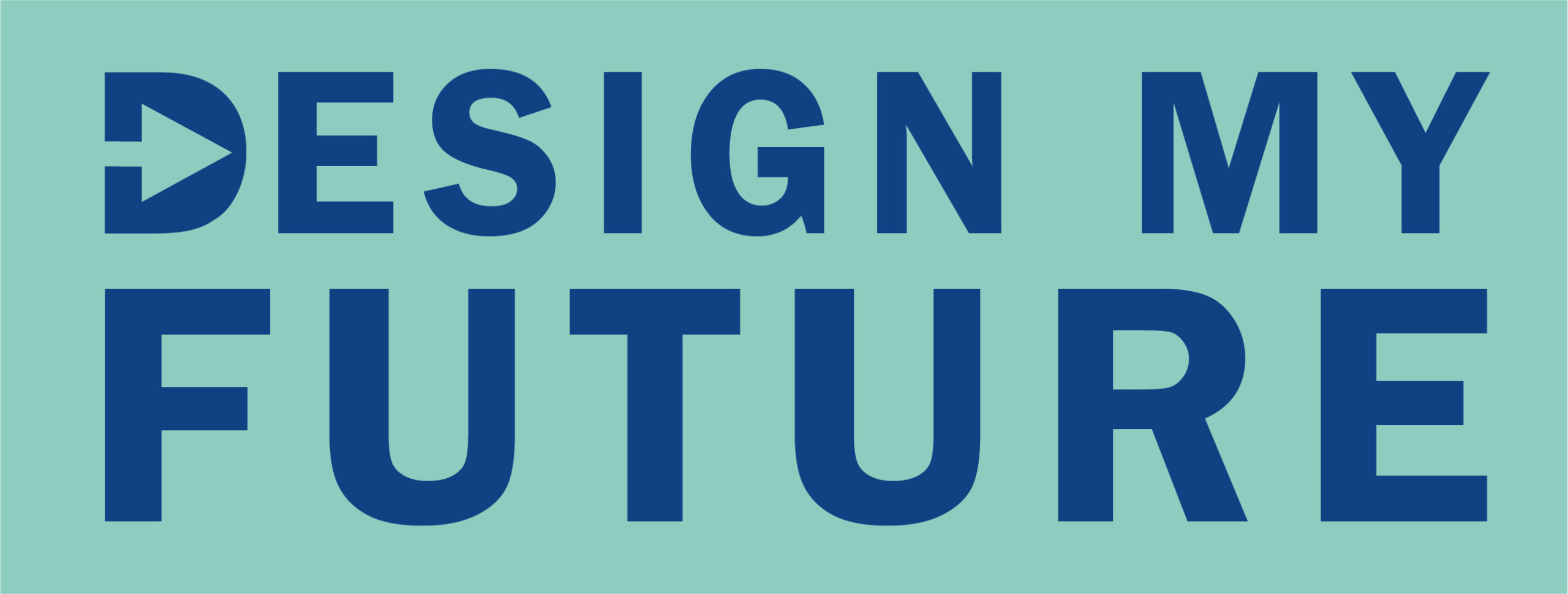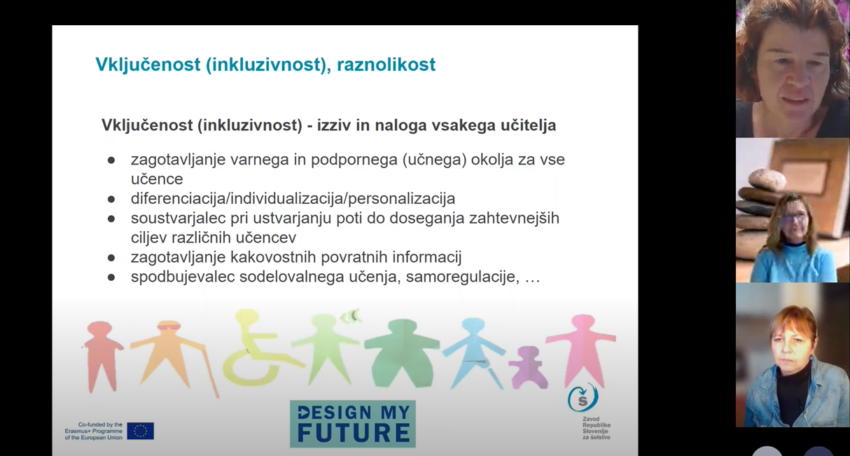As part of the international DesignMyFuture project activities, we organised an online event for educators on 1 December 2022 at the Slovenian National Institute of Education, where we presented new materials on reducing early school leaving among young people aged 14-17, aimed at teachers and other school professionals. More than 70 teachers and other educators took part in the event.
The guidelines address the current teaching needs of teachers and offer them a solution-oriented approach through prevention and intervention strategies that encourage young people to make informed educational and career choices and to complete their education or vocational training.
In our guidelines for teachers and other educators, we address prevention and intervention strategies for managing early school leaving among young people from vulnerable families. We have identified the following strategies as key in this context: formative assessment, creating a supportive and psychologically safe learning environment, inclusive leadership, and creating and working within a learning community. The guidelines also stress the importance of lifelong learning for teachers, such as: raising awareness and acquiring knowledge about the needs and characteristics of young people, about the importance of empathy and teacher’s relational competence for better ESL outcomes, about the teacher’s flexibility, and about teacher being a model supporting young people’s career choices. We aim to address the current teaching needs of professional teams when working with vulnerable groups of young people, offering teachers a solution-oriented approach to dealing with the diversity of pupils that modern times bring.
The material has been developed in collaboration with teachers, young people and parents from all partner countries (focus groups, questionnaire) and contains two parts:
- Professional opportunities and teacher roles to identify risks and prevent early school leaving (prevention strategies)
- Intervention strategies based on a solution-oriented approach to address the diversity of learners holistically.
– Vanja Kavčnik Kolar, Tamara Malešević and Alenka Andrin from National Education Institute Slovenia (NEI).

